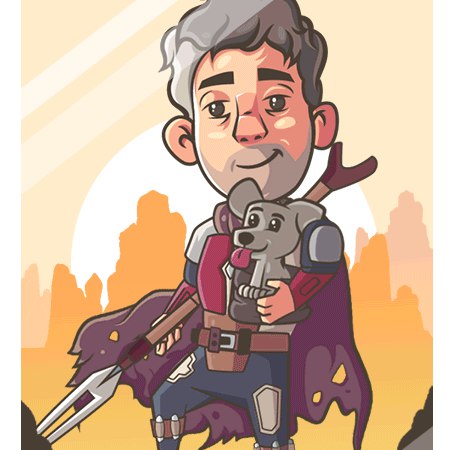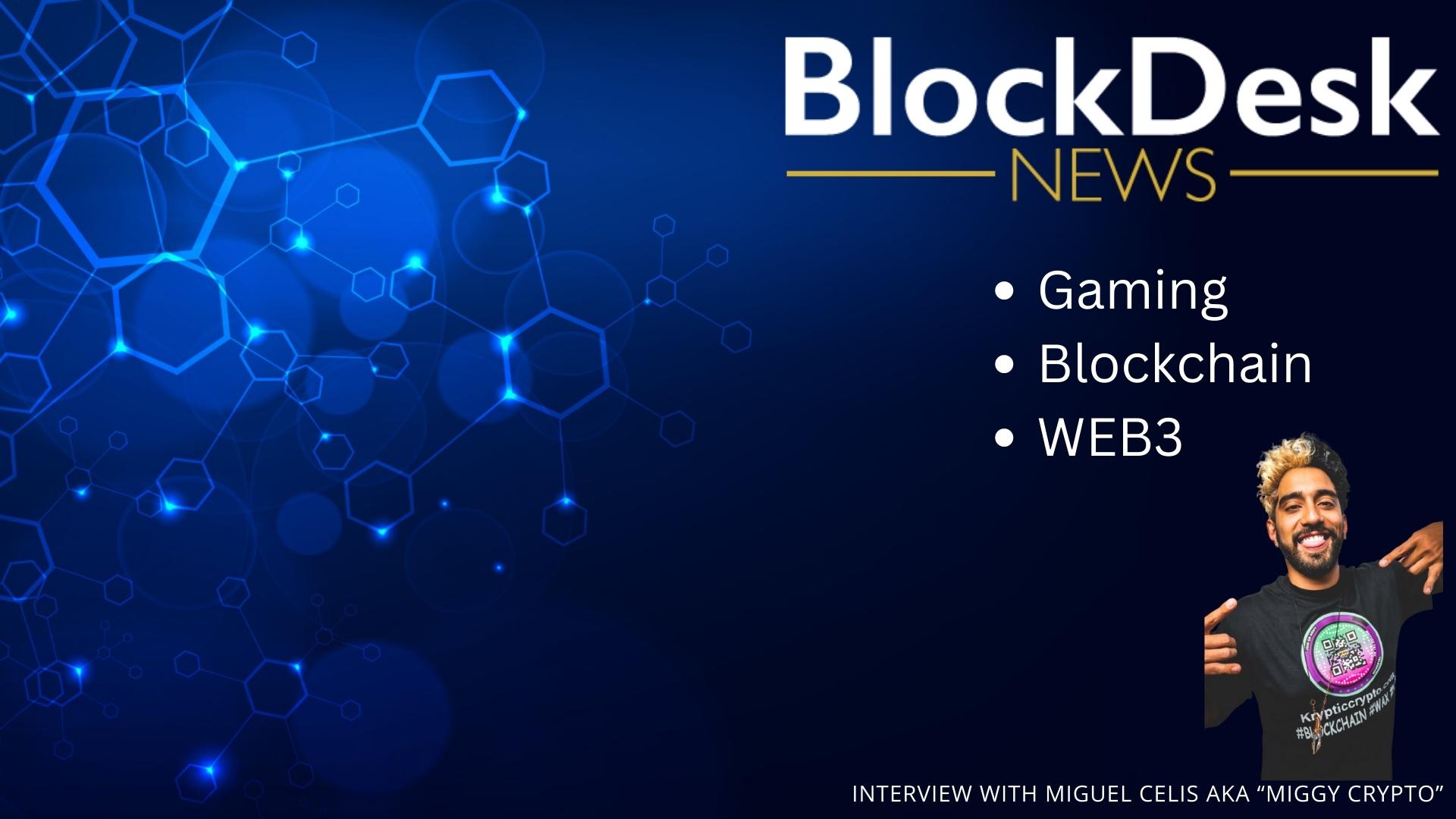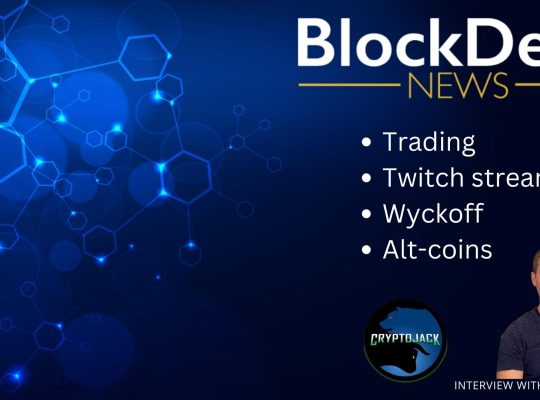1) How is Blockchain gaming different from traditional gaming?
Some key ways that blockchain gaming differs from traditional gaming is that it can help game developers with user metrics, offer ownership of digital assets as NFTs, and create a true in-game economy with the use of cryptocurrencies. It can help with metrics by providing transparency with an auditable, immutable record keeper. The nature of blockchain creates a database that cannot be tampered with. With that, you can add the layer of NFTs to digitally certify assets and ownership for gamers, meaning that you could buy a character or weapon skin that could later be sold/traded. This could also allow for ownership of accounts to be bought and sold since currently all assets and accounts are owned by the game-developing company. And instead of having a centralized in-game token, games can use cryptocurrency to create an economy that parallels the natural world and allows for true monetization of time/gameplay.
One key thing to note is that currently there is a market that exists known as the “Grey Market”, where gamers illegally buy/sell/trade assets and accounts from games that they do not own. Blockchain would enable this market to be legitimized so that royalties could be distributed, data could be tracked, and all could participate, from the game studios to the gamers, in monetization. Blockchain also allows for a level of interoperability not seen in traditional gaming, where projects could work together and have usable assets across different games.
2) Can you give an example of a perfect blockchain game without giving any project names?
A couple of examples from games who seem to understand the empowerment of blockchain in gaming can share some key features:
-they are fun and engaging
-are low or no barrier to entry, low cost or free
-have streamlined interaction of web 3 aspects (in-game wallet creation, in-game marketplaces, etc)
-create in-house content to instruct how to interact with the web 3 aspects
-making web 3 interactions optional
-great lore
-functional and sustainable token economy
-high emphasis on providing value to the community
-inclusive
3) How does blockchain technology enhance the gaming experience for players?
In addition to some of the previous statements, there are some other ways that blockchain enhances the user experience such as enabling any gamer to monetize their time and gameplay. Now you don’t have to be a top-rated gamer that wins tournaments, has strategic creator partnerships, or be on an esports team. What is being monetized, or rewarded, is time. Every second spent playing can be monetized. This allows for many different types of games to be played and earnings to be made by the time that is invested with skills being further rewarded. But anyone who puts in the time can monetize if they choose to.
Another way that it enhances the experience is by having more of a connection between game developers and gamers through airdrops and free mints to those who hold wallets of the game, even a gamer-to-gamer connection would benefit in a similar way. In addition, there would be a level of security provided that could make transactions and accounts safer.

4) How has the rise of blockchain gaming affected the cryptocurrency market?
I think the rise of gaming has impacted the cryptocurrency market by bringing in more users who may have not otherwise looked into, or participated in, web 3 overall. Some games are attracting people into the space, and by default creating learning opportunities for those who get involved. Having gamers who don’t know about cryptocurrency find a game they like and discover these features may force them to learn about it in a way that is productive and beneficial. So, the more people that know how to navigate the crypto space can participate.
5) How do in-game assets and currencies on blockchain games relate to the value of cryptocurrency?
The way in-game assets and currencies in blockchain games relate to the value of cryptocurrency is symbiotic. Especially when using established blockchains in conjunction with very liquid tokens. In-game currencies are needed for many functions of the game and also to move the assets from game to owner, or owner to owner. So as more people participate, this could allow for the value of cryptocurrencies to benefit if they are paired with games in a sensible way.
6) Can you discuss any challenges that the blockchain gaming industry is currently facing?
Currently, the challenges that are being faced mainly lie in the structure of the in-game economies as it relates to cryptocurrencies. Many games are utilizing tokens that are highly volatile and not creating any sort of sustainable way to stabilize the value of the tokens they are using. Also, security has been an issue for many who are not using traditional methods to keep users safe, i.e. data management, audits, firewalls, etc. Another big challenge that games are beginning to overcome was the barrier to entry and NFT prices. Most games are or have been, very heavily gated using NFTs tied to volatile cryptocurrencies that are at the mercy of market fluctuations, and some are just pricing their NFTs too high with little to no actual value or utility being provided.
I think the biggest challenge has been in spreading awareness of the things that do work, and are functional, to bring in the traditional gamers and game companies. With the majority of blockchain games being PC/Mac based, it prevents anyone from just jumping in so awareness is often limited to those who have computers/laptops to play on. With it being difficult to produce a mobile blockchain or platform game, growth will be slow.
7) How do you see the future of blockchain gaming and its impact on the cryptocurrency market?
Now, looking back at what games are currently doing right with blockchain I see a very bright future for gaming and web 3. With the current gaming industry being bigger than sports AND entertainment combined, it’s no doubt that the introduction of traditional gaming into the world of cryptocurrency would have a very positive impact. Gaming overall has blown up since the pandemic and is one of the few industries continually growing! What we know is that a lot of people worldwide are spending their hard-earned money just playing games they like for pure enjoyment. A very small percentage of them monetize… so everyone is throwing money in just to have fun. If done correctly, cryptocurrency/nfts/blockchain can create a level of incentive for gamers that never existed before.
Basically, if the trend continues to grow there will be more people that will spend money in the market for these games, which means overall more money in the cryptocurrency space. For me, gaming can be a spearhead of mass adoption in a realistic way with only a few bridges needing to be built creating an easy way for people to be onboarded globally, especially with the introduction of mobile and platform gaming.
This article was written by Miguel Celis aka “Miggy Crypto”. You can connect with him on the following socials:
https://www.youtube.com/@MiggyCrypto
&














